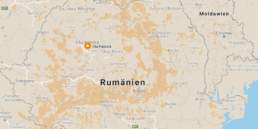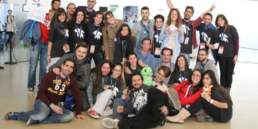AEGEE does not have a strong track record in fighting for environmental issues. The Environmental Working Group (EnWG) wants to change it. At the Agora in Budapest the EnWG will invite AEGEE members to become active in the new project “Ending Ecocide in Europe”. Mathieu Soete, Speaker of the working group, told the Golden Times, why the participants must not miss this workshop – and about the other activities of the EnWG.
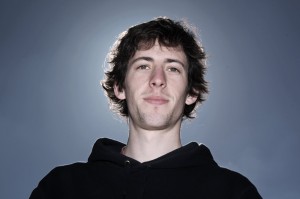
Golden Times: Mathieu, does AEGEE care enough about environmental issues?
Mathieu Soete: I like to believe that AEGEE members care about the environment and sustainability, but as a whole, we do not attach sufficient importance to it and do not translate this care into personal and organisational action.
Golden Times: Why?
Mathieu: This is a result of various factors. First, the financial situation of the average AEGEE member is not very conducive to choosing more sustainable ways of travelling than cheap Ryanair or Wizzair flights—also because most members cannot make time to enjoy the European landscape from a train window. Second, locals are expected to organise events at the lowest possible price, which generally does not allow them to source more sustainably. Finally, there is a general lack of knowledge on how to live, travel, and organise with a lower impact on our environment.
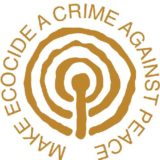 Golden Times: In what way is the Environmental WG helping to improve the situation?
Golden Times: In what way is the Environmental WG helping to improve the situation?
Mathieu: As a working group, our role is still primarily to raise awareness and provide thematic input to discussions and events. While awareness on the big environmental issues seems to be rather wide-spread by now, many members still perceive a disconnection between these and their own lives and actions. We should therefore move on and start increasing the practical knowledge of the network on how to actually provide remedies to these issues.
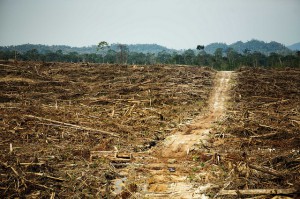
Golden Times: How?
Mathieu: A first step in this was taken with the Ecological Footprint Survey, developed for Agora Enschede. This survey calculates the ecological footprint of your lifestyle, making you generally more aware of what you should pay attention to. Next to this, members of EnWG developed a manual to help youth organisations in being more sustainable in their day-to-day activities and events, as part of the “Green Leaders” project by Youth for Exchange and Understanding (YEU). Environmental capacity is still limited in AEGEE, and this project is an example of how we are continuously looking for cooperation possibilities with other, more specialised organisations and initiatives, such as the Ecocide team.
Golden Times: What is Ecocide?
Mathieu: Ecocide is “the extensive damage to, loss, or destruction of ecosystems.” This is the legal definition developed by Polly Higgins, a corporate lawyer turned Earth lawyer, after growing more and more uncomfortable with the impact her clients were having on the environment. Some examples are the BP Deep Horizon oil spill, or the exploitation of tar sands in Canada, which have both been the subject of mock Ecocide trials in London last year. These activities and disasters result in wide-spread damage to their surrounding ecosystems, including heavy pollution of water, soil, and air, massive deaths of birds and fish, and extensive deforestation.
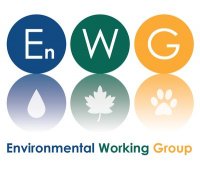 Golden Times: Your WG will have an Agora workshop about this topic. What’s the aim of the workshop?
Golden Times: Your WG will have an Agora workshop about this topic. What’s the aim of the workshop?
Mathieu: At the moment, a request is under consideration with the European Commission, to start up a European Citizens’ Initiative (ECI) on ending ecocide in Europe. The committee proposing this ECI contains a number of experienced AEGEE members, which makes it obvious for AEGEE to get involved in the campaigning towards youth and civil society. In order to be successful, and to force the Commission to start the legislative process on this new European law, no less than 1 million signatures will have to be collected over the course of 1 year. There are three aims of the workshop. One is to introduce participants to the concepts of ecocide and the ECI campaign. Another is to coach them in smaller groups on creating and planning local actions to inform people about ecocide and collect signatures for the ECI.
Golden Times: What is the “Ecocide is a Crime” campaign that the EnWG is dealing with?
Mathieu: In the past, wars have been waged over territory, religious belief, or personal interests. In the future, armed conflicts are increasingly fought over resources—water, oil, minerals, food. The wide-spread destruction of ecosystems and resources which results from ecocide activities, will lead to increased pressure on already scarce and contested resources, increasing the chance of armed conflict. Ecocide should therefore be recognised as an international crime against peace. Ironically, destroying the environment is already a crime in times of war, but is not punished in times of peace. The “Ecocide is a Crime” campaign therefore strives for this legal recognition, by proposing an amendment to the Rome Statute, the founding treaty of the International Criminal Court (ICC). With this, the ICC would be tasked with hearing charges of ecocide against individuals in positions of superior responsibility, such as CEOs of heavily polluting companies—but also heads of state.
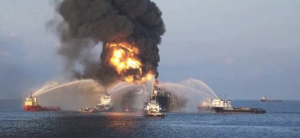
Golden Times: You want to coach your workshop participants to develop action ideas for their locals on the topic. Can you tell examples of such actions that have taken place or are planned?
Mathieu: The request to launch the ECI is still under consideration with the Commission, though should be granted by the beginning of October. Therefore, there are no actions on this campaign so far. However, there have been events organised by the Eradicating Ecocide campaign, such as collecting signatures on a long petition scroll at the Youth Blast, the youth preparation summit before Rio+20, in Rio de Janeiro last June. Other ideas could be a local workshop on the topic, or a discussion evening in partnership with an environmental NGO or expert.
Golden Times: With which antennae is your WG cooperating already? Can you give examples of the joint actions?
Mathieu: The cooperation of EnWG with antennae happens mostly through our two flagship projects: the European Day of Environment (EDE)—a six-week period in spring with environmental activities across the network—and the Green Summer Universities—this year responsible for half of the thematic Summer Universities. Examples of these over the past year, include cycling trips with AEGEE-København and AEGEE-Torino, a vegetarian cooking competition with AEGEE-Aachen, or a hike of 120 kilometer to Santiago de Compostela with AEGEE-Leon and AEGEE-Coruña.
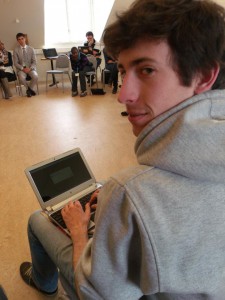
Golden Times: Can you tell a bit about the Environmental WG? Why should people join?
Mathieu: Our aims are to raise awareness on the state of our planet—which is a broader than just environmental issues, discuss solutions we can achieve together; collect information on the sustainability of the network; and support sustainable AEGEE events. Whether you are looking to learn more about sustainability, give environmental workshops to the members of your or other locals, or coordinate a project like EDE or GreenSU, we have something for you!
Golden Times: How can people join?
Mathieu: Let’s start with the easiest part: becoming a member. The only thing one needs to do, is going to lists.aegee.org and join the Environment-L mailing list. For those that just wish to stay a bit updated on the main topics and announcements, we have the EnWG Facebook group, which is also open to non-members.
About Mathieu Soete
Mathieu Soete has been a member of AEGEE-Leuven since April 2010, starting his active life in AEGEE with the Beyond Europe Case Study Trip to South Africa in September of the same year, and joining the board of his local. Apart from the regular list of events, he took part in the first EuroArab exchange, and officially joined the European level last year by becoming the Speaker of EnWG. “In general I have been trying to push sustainability in AEGEE, for example by doing a green audit of the CD house and by bringing the network closer to events like Rio+20 or, on a smaller but more practical level, the Green Leaders training in Mollina”, Mathieu says. “I do believe there is a genuine concern on this topic within AEGEE, but we need more people who can link it to small changes we can make in our day-to-day lives and activities. But you can read our manual on this soon!”

